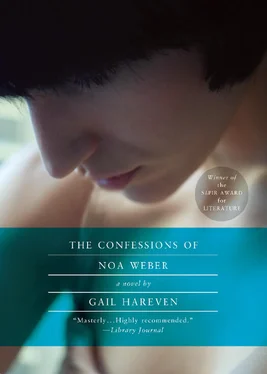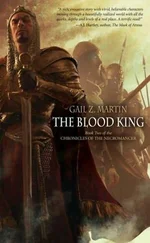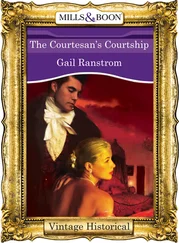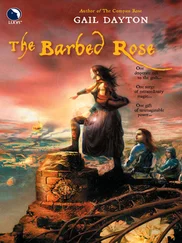I had no idea that Alek took this teasing seriously, until the afternoon after Yom Kippur.
The preceding twenty-four hours had not been easy. At this point I no longer needed excuses for not going home, but this week my father had flown in for a visit, and in order not to aggravate the tension that had started to accumulate, I presented myself for the meal preceding the fast, which in our case, needless to say, preceded nothing. When my mother set about polishing the sink, and my sister Talush’s friends called her to come out to skate in the empty streets, I said a hasty goodbye and left. I ran most of the way from Ramat Eshkol to Nachlaot.
Alek had given me a key the first week, but when I saw a light on in the house I didn’t use it, I knocked, and this was the first time that Alek opened the door and stood aside without touching, letting me in as if I was his roommate. “Is this not a good time for you?” “It’s fine. You can come whenever you like. That’s what the key is for.” And he retired to his little study as if he was dividing the rooms up between us.
To my astonishment, Alek fasted, shutting himself up for the evening and the day and drugging himself on Sibelius, played softly so as not to disturb the neighbors. I spent the time staring at the pages of a book, sleeping and daydreaming alternately, disturbed by the lack of the routine sounds that divided the day into clear units of time and notified the body of its functions. There are three synagogues near the house, and in the bedroom the sounds mingled, with one prayer rising and then another, and all the time the subterranean current of Sibelius, coming to the surface only in the hot, heavy silence of the afternoon break, and giving rise in me to a miserable little whimper that punctured my trance.
At the end of the day, when the music stopped, Alek still didn’t open his door and I fell asleep again, and when I woke up sweating in the middle of the night I discovered that he hadn’t come to bed, that he must have gone to sleep on the sofa in his room.
I saw him again only the next day at noon, when he came in with a few of the regulars. The academic year was about to begin, and they were angry about some survey courses they were obliged to take and some teacher whose contract hadn’t been renewed, for reasons which were only too clear: because of the way he talked about Dayan and because of that joke he told about Golda Meir. The heat wave had not yet broken, and they all looked worn out by the heat. Someone I didn’t know suggested going on strike or publishing a statement, and this time it was Dalit who said: “Yeah, sure. You’ll all go on strike, just like you’ll all marry Noa.” Alek was standing opposite her, clenching one fist in another in front of his chest, cracking pecan nuts which Yoash had brought from his parents’ farm. A silence must have fallen, because I heard the sound of the crack, and then his voice saying: “Marry Noa … okay … Noa, do you want to get married?”
ALEK ASKED
Alek asked: “Do you want to get married?” And he didn’t add, “to me.” But at the same time he said: “Do you want to get married?” and not “Do you want me to exempt you from serving in the army?” Which is perhaps a slightly different question.
Did I want to be exempt from army service? Until I met him it wouldn’t have occurred to me for a minute not to be drafted, and apart from one classmate who had polio, I didn’t know anybody who avoided army service, including those present in the room, including Alek himself.
The idea of serving in the army of occupation and oppression didn’t bother me particularly, what troubled me was the new awareness that the IDF was about to oppress me. Girls from my year who had been drafted in August had already concluded their basic training and been sent to all kinds of bases to serve as clerks. And somehow it was clear to me that the new me couldn’t be sent anywhere to serve anyone. That I would simply get up and run away if they tried to squeeze me into some asbestos office. It had no connection to ideology, or only a tenuous connection — my criticism of women’s service in the IDF developed years later — I only knew that I wouldn’t be able to bear it: I wouldn’t be able to bear being sent away from Jerusalem, and I wouldn’t be able to bear being sent away from Alek. Because I didn’t have an ounce of attention to invest in anything that wasn’t charged with my love.
Jerusalem was charged with love for me. The map of the city was imprinted in me with illuminated areas where the air grew bright and the vibration of my inner waves intensified, the concentrated areas where we had wandered together, and the further I receded from them in my imagination, the grayer I grew inside, disappearing from myself into the gray, flat nothingness.
Alek was going to leave for Germany in July, I had no doubt that he would leave, but until July there was still more than nine months to go, a short time, a long time. I couldn’t consent to this time being taken away from me. Love had mobilized my entire being, love ruled me like a tyrant, and love would allow for no other master.
I reread the last couple of paragraphs and it’s all true: I couldn’t imagine myself leaving Jerusalem, I couldn’t part from Alek, I wanted to buy more time, true and true and true, but there’s one simple and shameful thing I haven’t yet said. I loved Alek, and therefore I wanted to marry him.
GOING TO THE RABBINATE
I didn’t look at him or at anyone else when I said: “Yes, I want to.” And the next thing he said was: “Okay, then let’s go and do it now, just tell me where to go.”
At that moment he was a king, he was their prince, they admired him more than ever, and some of that admiration was directed at me too, so that the doubts as to whether we were “really going to do it” were addressed to us in the plural. For a few minutes “you” meant both of us, and that “you”—the crazy, impulsive, glamorous, free-spirited you — was intoxicating. At the first words of doubt Alek threw the cracked pecans into the basket, and on the spot, accompanied by all of them, we set out for the Rabbinate on Havatzelet Street.
I recall the movement with which he aimed the pecans and hold it in my imagination, and Alek in his white tee shirt looks like a boy, slender and cropped. He was then twenty-eight, almost as old as Hagar today. But even today when the touch of his thinness sometimes feels like the touch of old age — and only rarely like the touch of a slender boy — he is still the same Alek who clenched fist over fist, and so he will apparently always remain, never mind the metamorphoses of his body.
Dalit, Hyman, and two others I barely knew, dropped out on the way on various pretexts. Perhaps things had gone further than they intended, perhaps they had been infected by some other embarrassment, but three of them, surrounding the pair of us like tipsy bodyguards, accompanied us into the Rabbinate building and testified that they had known us from early childhood, and that they knew beyond the shadow of a doubt that Alexander Ginsberg and Noa Weber were single. And when the officials of the Holy One Blessed Be He began to inquire as to the exact date of Alek’s arrival in Israel, it turned out that one of our witnesses was also a Ginsberg, just like Alek, and this Ginsberg quickly improvised all kinds of fibs about the family connection, about uninterrupted correspondence and frequent visits in Paris. “Alexander Ginsberg,” babbled the ginger-haired Ginsberg, imitating the gossipy tone of the clerks, “Alek, as we call him in the family, is a confirmed bachelor. To such an extent that his mother began to worry that she wouldn’t have any grandchildren, and my mother told her, send him to Israel, and you’ll see that he’ll soon find himself a nice Jewish girl to marry.” And we all smothered hysterical giggles.
Читать дальше












